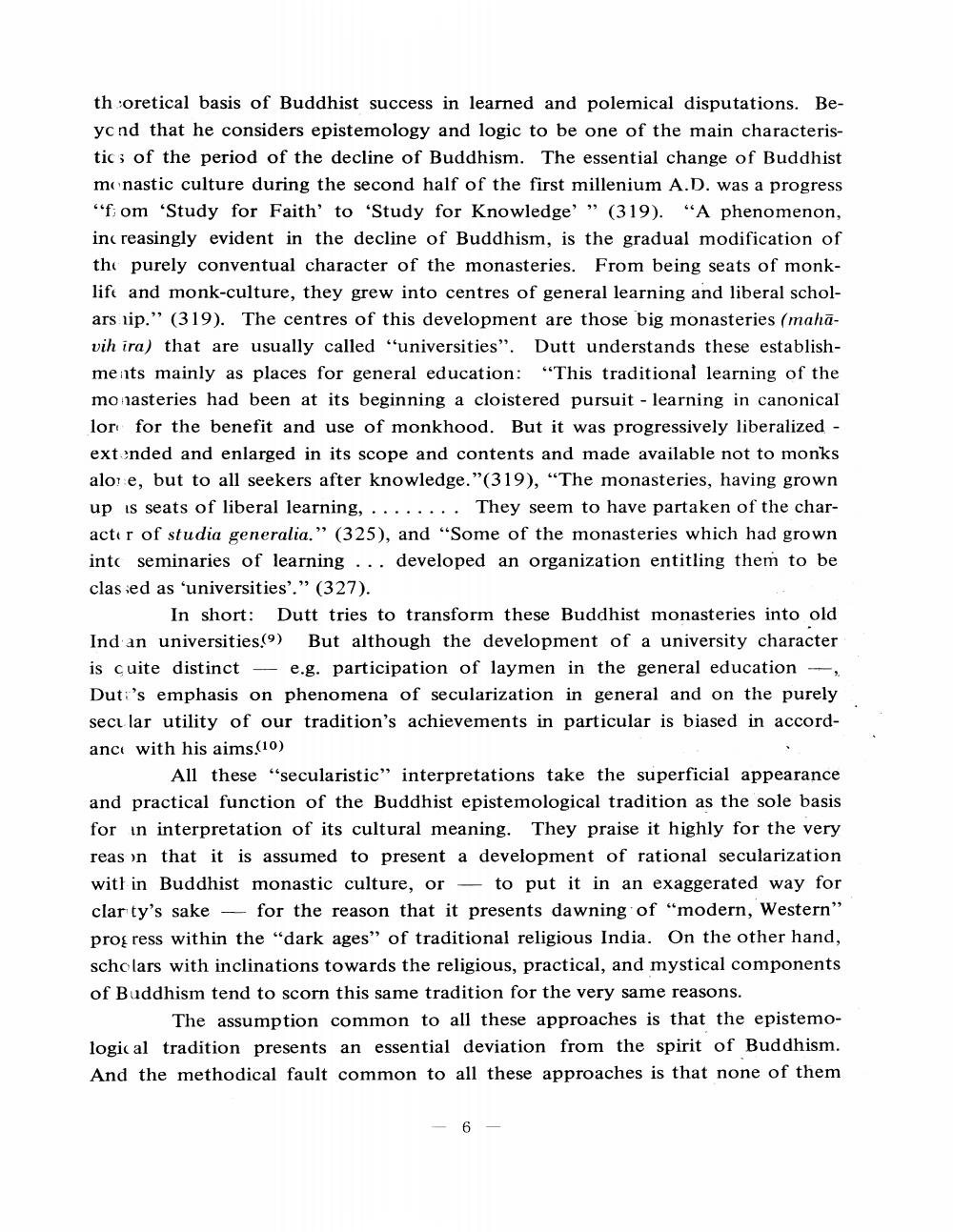Book Title: Spiritual Place Of Epistemological Tradition In Buddhism Author(s): Ernst Steinkellner Publisher: Ernst Steinkellner View full book textPage 6
________________ th oretical basis of Buddhist success in learned and polemical disputations. Beyond that he considers epistemology and logic to be one of the main characteristics of the period of the decline of Buddhism. The essential change of Buddhist monastic culture during the second half of the first millenium A.D. was a progress "f om 'Study for Faith' to 'Study for Knowledge' ” (319). “A phenomenon, increasingly evident in the decline of Buddhism, is the gradual modification of the purely conventual character of the monasteries. From being seats of monklife and monk-culture, they grew into centres of general learning and liberal scholars iip." (319). The centres of this development are those big monasteries (mahāvih ira) that are usually called "universities". Dutt understands these establishments mainly as places for general education: "This traditional learning of the monasteries had been at its beginning a cloistered pursuit - learning in canonical lor for the benefit and use of monkhood. But it was progressively liberalized - extended and enlarged in its scope and contents and made available not to monks alo: e, but to all seekers after knowledge."(319), "The monasteries, having grown up is seats of liberal learning, ........ They seem to have partaken of the character of studia generalia." (325), and "Some of the monasteries which had grown into seminaries of learning ... developed an organization entitling them to be clas ed as 'universities'." (327). In short: Dutt tries to transform these Buddhist monasteries into old Ind an universities (9) But although the development of a university character is cuite distinct - e.g. participation of laymen in the general education Duti's emphasis on phenomena of secularization in general and on the purely secular utility of our tradition's achievements in particular is biased in accordanct with his aims (10) All these “secularistic” interpretations take the superficial appearance and practical function of the Buddhist epistemological tradition as the sole basis for in interpretation of its cultural meaning. They praise it highly for the very reas in that it is assumed to present a development of rational secularization witł in Buddhist monastic culture, or — to put it in an exaggerated way for clar ty's sake – for the reason that it presents dawning of "modern, Western” progress within the “dark ages" of traditional religious India. On the other hand, scholars with inclinations towards the religious, practical, and mystical components of Buddhism tend to scorn this same tradition for the very same reasons. The assumption common to all these approaches is that the epistemological tradition presents an essential deviation from the spirit of Buddhism. And the methodical fault common to all these approaches is that none of them - 6 -Page Navigation
1 ... 4 5 6 7 8 9 10 11 12 13 14 15 16 17 18
